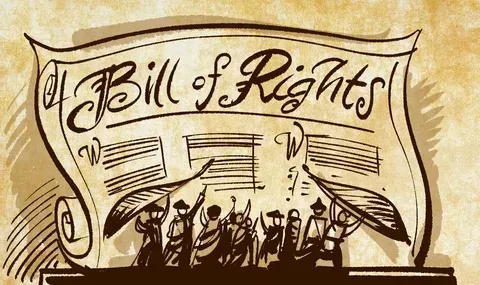Student Disciplinary Records and Future Employment

Introduction
Your main goal as a college student is to obtain a degree (or degrees) to prepare you to enter the job market as a professional, either because a degree is required, or because you want to stand out as a more attractive candidate for future employment. In today's competitive job market, employers often conduct thorough background checks on potential candidates to ensure they are making informed hiring decisions. One area that has gained increased attention in recent years is college student disciplinary records. As a student and as an aspiring professional, it's crucial to understand the implications of these records and how they may affect your career prospects.
In this blog post, we will discuss the topic, exploring the significance of university disciplinary records, the disciplinary procedures conducted by the universities, the information employers can access, and steps you can take to mitigate any negative impact.
The Importance of Background Checks
Background checks have become an essential part of the hiring process for many employers. They are conducted to verify the accuracy of the information provided by candidates and to assess their suitability for a particular role. Employers aim to protect their organizations and ensure they are hiring individuals who align with their values, exhibit ethical conduct, and possess the necessary licenses and qualifications. Background checks are also conducted to find out if the candidate possesses traits that align with the company’s mission and values.
Employer Access to Disciplinary Records
Whether or not employers can access your college disciplinary records depends on various factors. Educational Institutions are bound by privacy laws, such as the Family Educational Rights and Privacy Act (FERPA), which restricts the disclosure of student records without their explicit consent.
However, there are exceptions when it comes to sharing information related to safety or in response to a legitimate inquiry by an employer. Generally, though, the employer would ask for your permission to request the record, or they will ask you to provide it to them. Of course, you can always deny the future employer access to your disciplinary records. However, often, doing so will raise suspicion from the employer, resulting in not taking your candidacy for any further consideration. Another factor to note is if the position is to work either in state or federal government, which sometimes require some sort of Clearance, and are much more invasive disclosure requirements. Many times, whether is in the application, or any form prior to the selection process, they require you to disclose information under penalty of perjury.
Importance of understanding Disciplinary Procedures
College disciplinary records typically involve violations of academic or behavioral conduct codes within educational institutions. Examples of offenses may include plagiarism, cheating on exams, substance abuse, physical altercations, or harassment. When such incidents occur, colleges often maintain records as a means of tracking students' disciplinary history and promoting campus safety.
There is a close correlation between understanding the Student Conduct Code from the school, --which tends to state the regulations of the student conduct disciplinary process- and the student disciplinary record. This is, you can’t have a student disciplinary record without having gone through the disciplinary process outlined in the school policy or Student Code of Conduct. How you prepare for the disciplinary process may be a key component of a favorable outcome, and thus the possibility of not having a disciplinary record.
In some universities, students who are accused of a Student Conduct violation are notified of the violation by writing. In some cases, students are offered to not contest the charges in exchange for a lenient sanction, such as repeating a course, writing articles reflecting about the alleged violation, completion of a program, or probation. However, many times, the student is not aware of the school’s policy regarding the sanctions and the disciplinary record and thus agree to the lesser sanction either because of their lack of knowledge, or the intimidation of the school’s disciplinary process. Understandably, the student finds themselves nervous when faced with the formality of a disciplinary hearing, so they end up accepting the charges, not knowing that it will result in having a disciplinary record for as long as the university policy allows, usually for years to come, depending on the severity of the violation.
Some universities policy allows a student advisor to appear in a disciplinary hearing. However, if you are being accused of academic misconduct, is important to have a professional to guide you as early in the process as possible, preferably in the investigation stage. The student advisor can be an attorney, an education professional, a parent, or even a friend. In my experience, when the student advisor is an attorney, universities often take the process –and the student’s rights more seriously. That student advisor would have read and understood thoroughly the Student Handbook, Code of Conduct and/or school’s policies and will guide you to be more prepared to fight the charges against you. Even if every venue in the school level is exhausted and the outcome is not favorable for the student, the student advisor may request a meeting directly with the Office of General Counsel (which are the university’s attorneys) to negotiate a better outcome in the student's behalf. Depending on the university and the severity of the sanction, the expungement of disciplinary records is an alternative that could be discussed with the General Counsel.
Mitigating the Impact of Disciplinary Records
However, if you already have a disciplinary record, it's important to take proactive steps to address any concerns that potential employers may have:
Reflection and Growth: Reflect on the incident that led to the disciplinary action and consider the lessons learned from the experience. Demonstrating personal growth and the ability to learn from mistakes can help employers see you in a more positive light.- Honesty and Transparency: If a prospective employer asks about your disciplinary history, be honest about the incident and show remorse, highlighting how it shaped your personal and professional development. Integrity and transparency can go a long way in building trust with potential employers.
- Recommendations and References: Secure strong letters of recommendation from professors, mentors, or employers who can vouch for your character, work ethic, and potential. Positive references can help counterbalance any concerns arising from your disciplinary record.
- Professional Development and Certifications: Engage in continuous learning and professional development activities to demonstrate your commitment to self-improvement and staying current in your field. Obtain certifications or participate in relevant workshops to enhance your skill set and showcase your dedication.
Conclusion
While college disciplinary records may raise concerns for some employers during background checks, it's important to remember that everyone makes mistakes. What truly matters is how you have grown and developed as an individual since that incident. By adopting a proactive approach as early and prepared as possible, demonstrating honesty and personal growth, and showcasing your qualifications and positive attributes, you can mitigate the potential impact of a disciplinary record and position yourself as a strong candidate in the job market. Remember, your past does not define your future, and employers value individuals who show resilience, responsibility, and a commitment to personal and professional growth.
More News & Resources











